Affiliate disclosure: This post may contain affiliate links. Please see our Privacy Policy.
Farm-fresh eggs are a bit different than store-bought eggs, and they can be handled and stored differently.
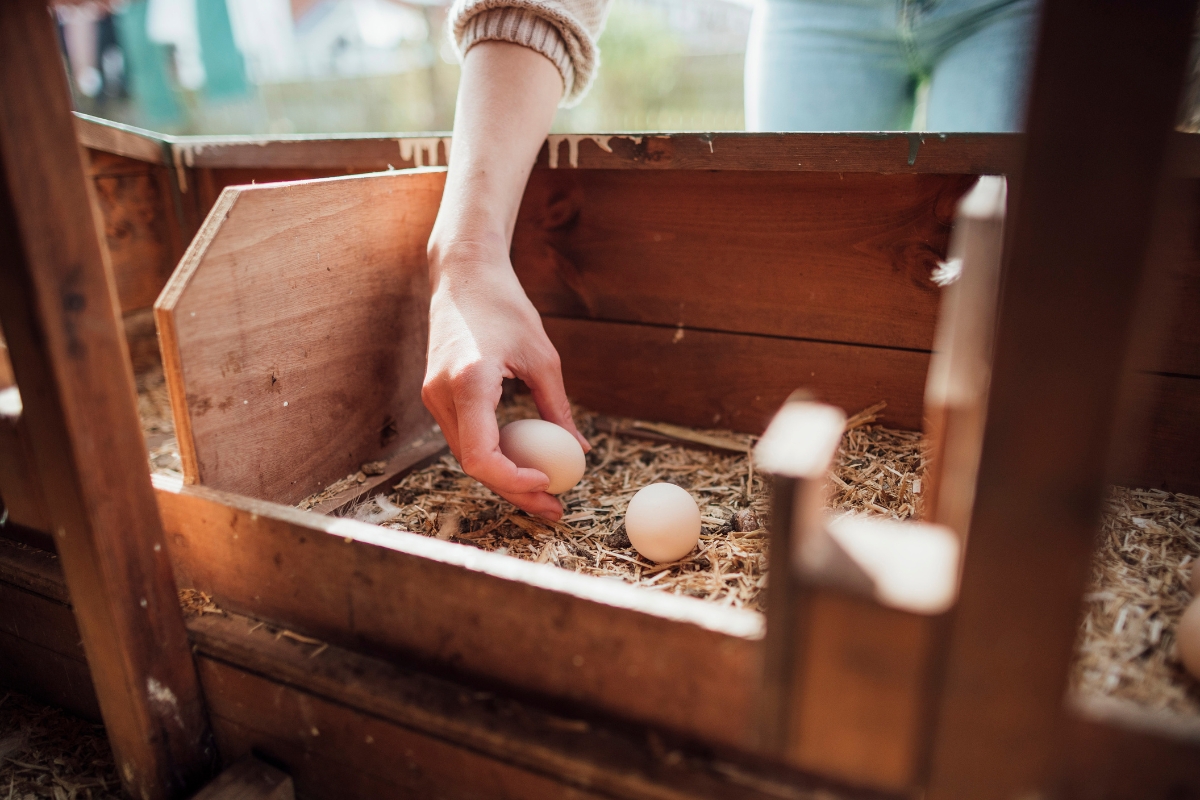
When you start keeping backyard chickens, you’ll get a lot of first-hand experience handling farm-fresh eggs. Believe it or not, farm-fresh eggs are handled a bit differently than grocery store eggs.
When eggs are fresh, they have a natural protective bloom on the outside that keeps them fresh naturally at room temperature. Clean, but unwashed eggs will keep on the counter for many weeks without refrigeration.
Once the eggs are washed, however, they’ll spoil quickly unless they’re kept very cool. That’s one reason farm fresh eggs are rarely washed, since washed eggs take up valuable refrigerator space.
Learn how to collect and store eggs to keep them clean and preserved naturally, without washing or refrigeration.
How to Collect Eggs from the Coop
Collecting eggs every day is important, especially with a large flock. You should check the nest boxes first thing in the morning and then again in the evening. During extreme temperatures, it’s important to check multiple times a day, if possible, to ensure eggs don’t freeze or burst.
Keeping the nesting boxes clean is another crucial task for egg production and collection. First, it keeps the boxes free from fleas, mites, and other disagreeable pests. But it also yields cleaner eggs, which is always a plus.
Some birds clean out their own nests even when we don’t want them to! But if they don’t do it, we can always lend a helping hand. Depending on how many chickens you have and a few other factors, we suggest cleaning out nest boxes once a week to once a month or as necessary. Thick bedding layers allow you to clean out the top layer, but it’s important to do a complete cleaning at least twice each year.
When you go out to collect eggs, be sure to bring a container or basket to bring them back into the house. Pocket packing may seem like a good idea until you wind up with a big mess.
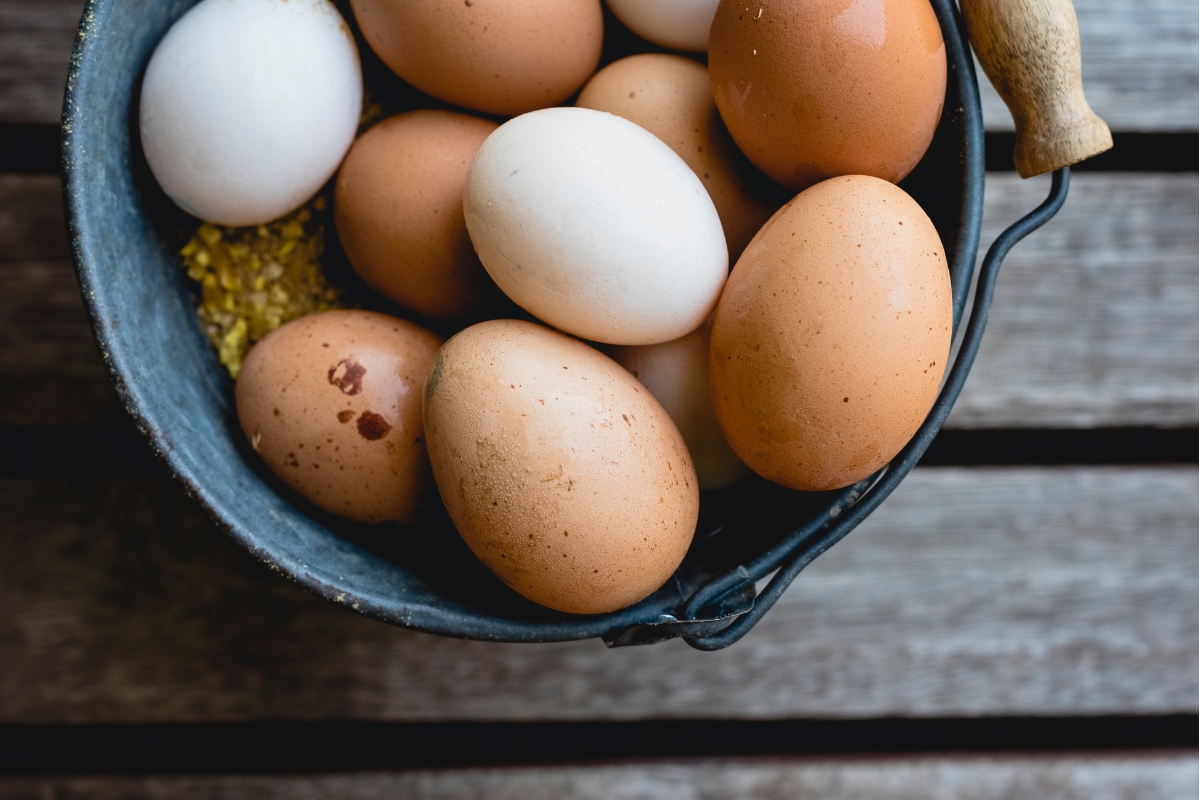
Should You Wash Fresh Eggs?
We don’t recommend that you wash eggs before storing them. In fact, it’s essential to make sure they don’t get wet after collection. But there’s a good reason for that.
Before a hen lays an egg, it’s covered with a protective coating known as the bloom. This bloom keeps bacteria from getting into the egg, which has between 6000 and 8000 pores. As long as the bloom is intact, your eggs can sit on the counter for up to a month. But as soon as the egg gets wet, it diminishes the bloom and leaves the egg susceptible to bacteria invasion, resulting in rotten eggs.
You can feel free to wash the egg before cracking, preventing any debris on the eggshell from falling into the food. But don’t wash your eggs before storing.
How to Clean Dirty Eggs
First, it’s crucial to know how NOT to wash your eggs. Since washing removes the natural “seal” over the pores, using soap, bleach, or chemicals of any kind is ill-advised. These can pass directly through the pores on the eggshell to contaminate the egg inside.
If you must wash your eggs for whatever reason, be sure to use warm water and don’t soak the eggs.
Do not use cold water to wash the eggs, as this creates a vacuum effect, which pulls bacteria into the egg faster. Worse still, letting eggs sit in a cold water bath, which gives bacteria more time to infiltrate the shell.
For those who need to clean their eggs due to excessive amounts of dirt and debris, use only warm water that’s at least 90 degrees Fahrenheit. This method works opposite to the cold water bath, so the egg expands enough to push contaminants away from the pores in the shell.
After washing, dry the egg thoroughly before storing it in the refrigerator. Storing wet eggs brings us back to the problem of contaminants seeping into the pores and causing problems.
Remember, it’s best not to wash fresh eggs. But if you do, use this method to minimize potential risks to you and your family.
How to Keep Eggs Clean
From the point of collection, the best way to keep eggs clean is to ensure your nest boxes stay clean. Sure, you could wash them as soon as they’re collected, but as we reviewed above, that can bring its own set of problems. So, the idea is to gather clean eggs that don’t need washing once you get them inside. But how?
There are a few great ways to prevent eggs from becoming overly soiled that work well without too much effort. Here are some ideas you might want to try for your eggs.
- Collect eggs regularly. Even multiple times each day, if necessary. If you have a larger flock, this also helps avoid breakage and broody mama hens, so it’s a win-win!
- Clean nest boxes often. Remove bedding and replace it with clean materials. But don’t forget about the rest of the coop during this stage. Chickens can track in mud, manure, and other debris that can quickly soil even the freshest and cleanest nest box. We may be able to “scrape by” in other areas, but this isn’t one of them.
- Consider a roll-away nest box. These are designed to cause eggs to roll away from the chicken when laid, preventing dirty eggs. But it’s also good for avoiding cracked and eaten eggs too.
- Use sand as litter. Sand is a more expensive litter choice but works wonders to eliminate odor and moisture. It dries quickly, too, keeping chicken feet cleaner, and this naturally transfers into a cleaner nest box.
How to Store Fresh Eggs
We store ours right on the counter, stacked in 18-pack cartons, with the oldest eggs on top. It’s worth the few minutes it takes to keep the stack rotated because it decreases any egg loss due to them being too old and going bad.
If you don’t have a lot of counter space, you can always stack your cartons in a basement or any other area that stays cool. The important thing to remember is that you don’t have to refrigerate them. Of course, you can, but once refrigerated, they can never be brought back out and left on the countertop because condensation will ruin the bloom and cause the egg to go bad.
How Long do Fresh Eggs last?
Fresh eggs that have been properly cared for can last from six weeks to six months, depending on several factors. Most are discussed above. But you also need to keep an eye out for thin or deformed shells. While this is not an immediate sign of a rotten egg, you should use these first to avoid any contamination that wouldn’t otherwise happen with a thicker-shelled egg.
How Do You Preserve Eggs?
Generally speaking, your fresh eggs will last a long time if they’re not washed and cool-ish. This means not storing them in the fridge but rather in a space that’s cooler than the rest of your home.
However, if you’ve over-flocked yourself and you’re getting a ridiculous number of eggs (and choose not to sell them), there are some great ways to preserve them. Many people do this to make sure they have eggs through the winter.
One of the most effective egg preservation methods is to store your eggs in lime water. You dissolve pickling lime in water and then submerge the eggs in the solution. The lime mineral coats the egg and seals the shell, keeping them preserved for 12+ months at a time.
If you’re looking for other methods, I have a guide to more than 30 ways to preserve eggs.
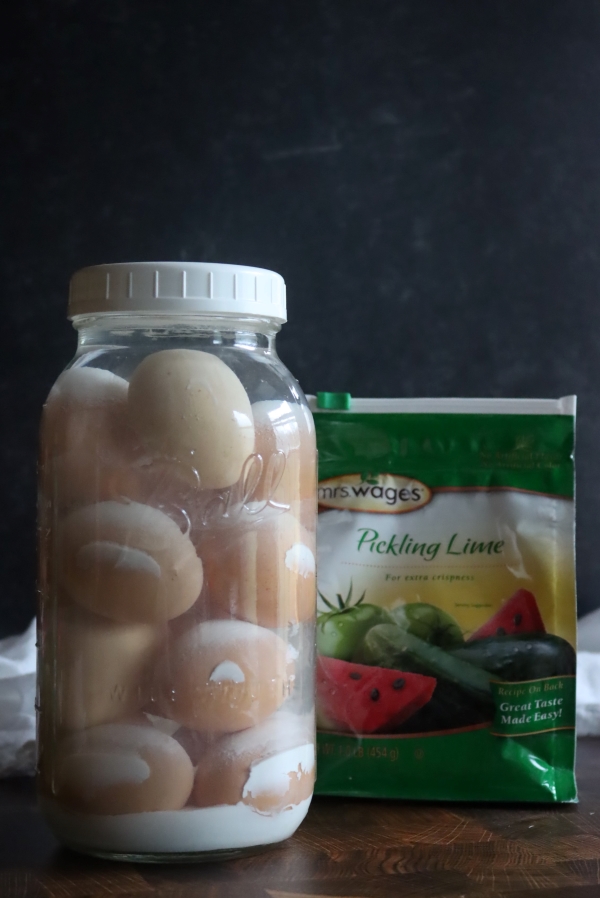
How Can You Tell if an Egg is Rotten?
Figuring out if an egg is bad before it’s cracked is of the utmost importance! If you’ve never experienced this in person, there’s no way to describe the putrid smell that fills the air. We want to help you avoid that if at all possible.
The float test is one of the most reliable, though some disagree. I’ve never had the test fail yet, so here’s the process.
When you’re ready to use your eggs, set aside the number you plan to use. Fill a large bowl with warm water and gently place the eggs in it. If an egg immediately pops to the surface, you have yourself a bad egg. If it’s not headed into the rotting stage, it’s old enough to start at any time.
Some eggs will sink directly to the bottom and lay on the long side, which tells you this egg is very fresh and likely less than a week old. Eggs that tilt upward on one end are generally one to two weeks old. Those that “stand on their nose” is two to three weeks old. These are standard assumptions, however, with the main point being to avoid floaters.
Chicken Keeping Guides
Looking for more chicken-keeping guides?
- How Much Does it Cost to Keep Chickens?
- Beginner’s Guide to Chicken Egg Colors
- What’s the Difference Between a Duck Egg and a Chicken Egg?
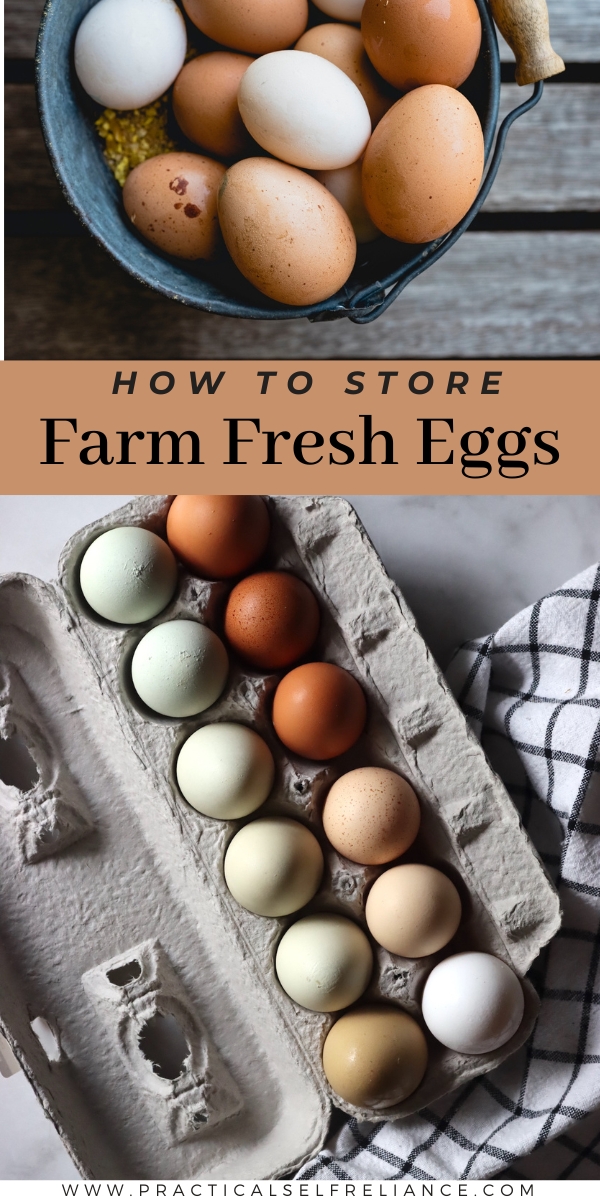
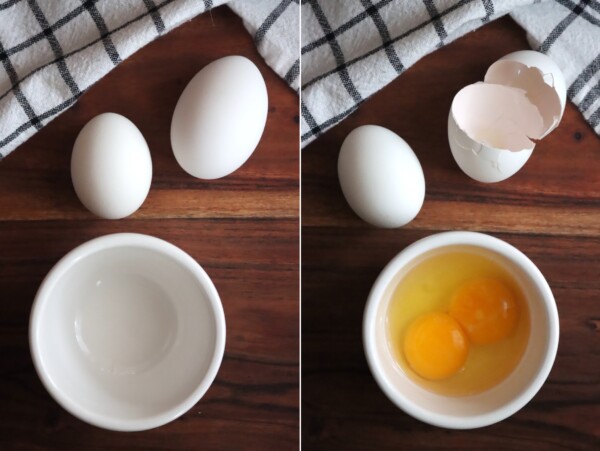
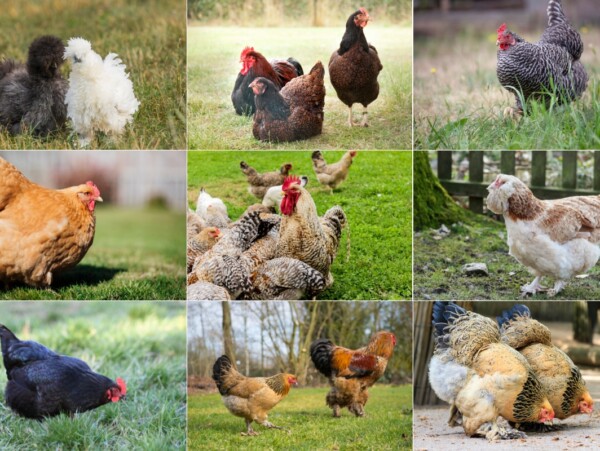

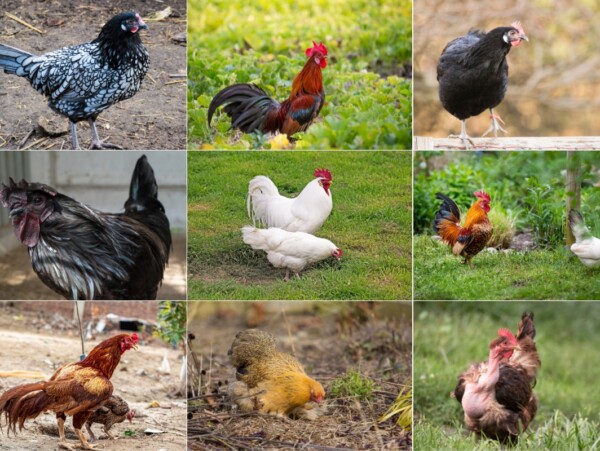
Hi! This is useful information, I always enjoy reading your blog.